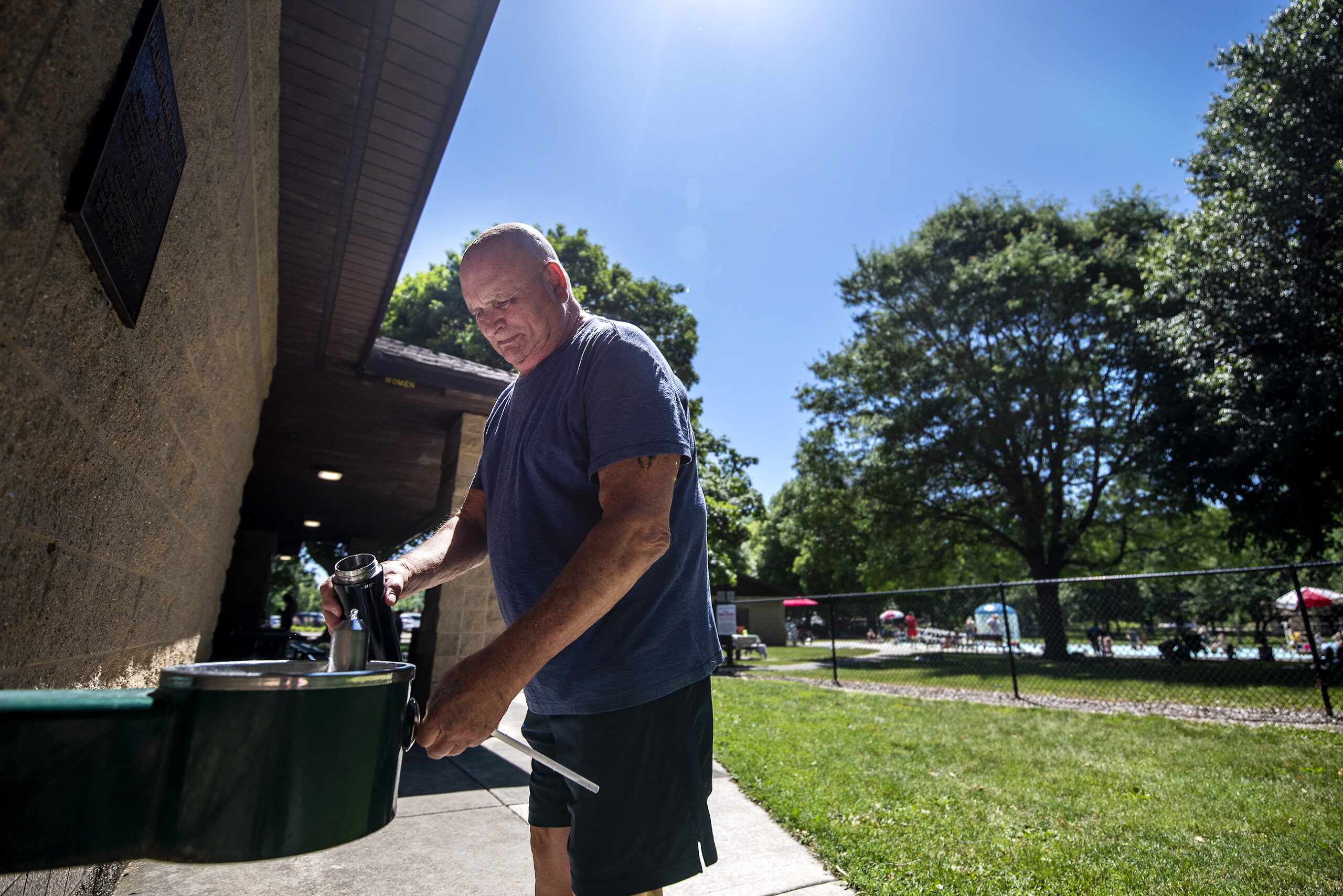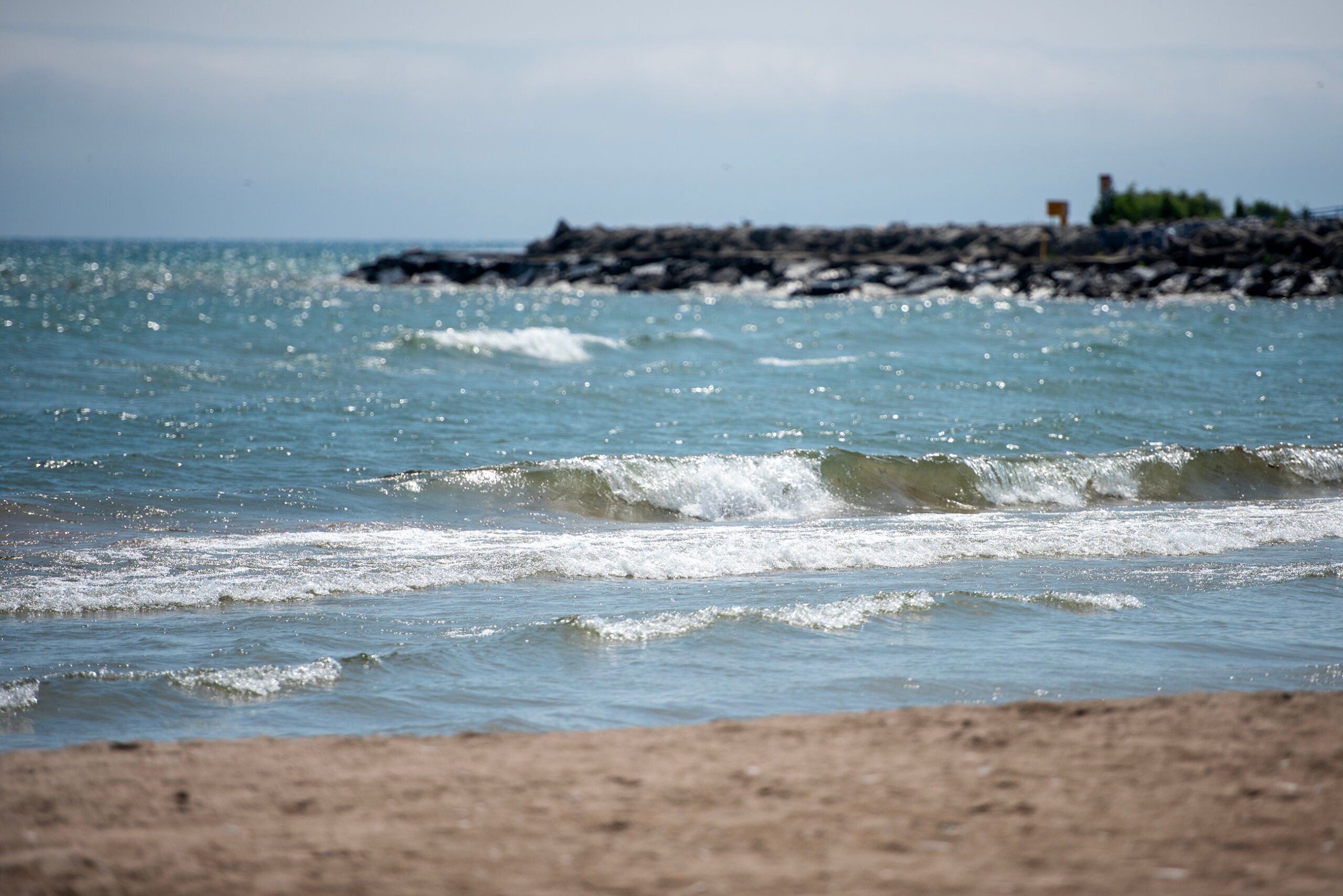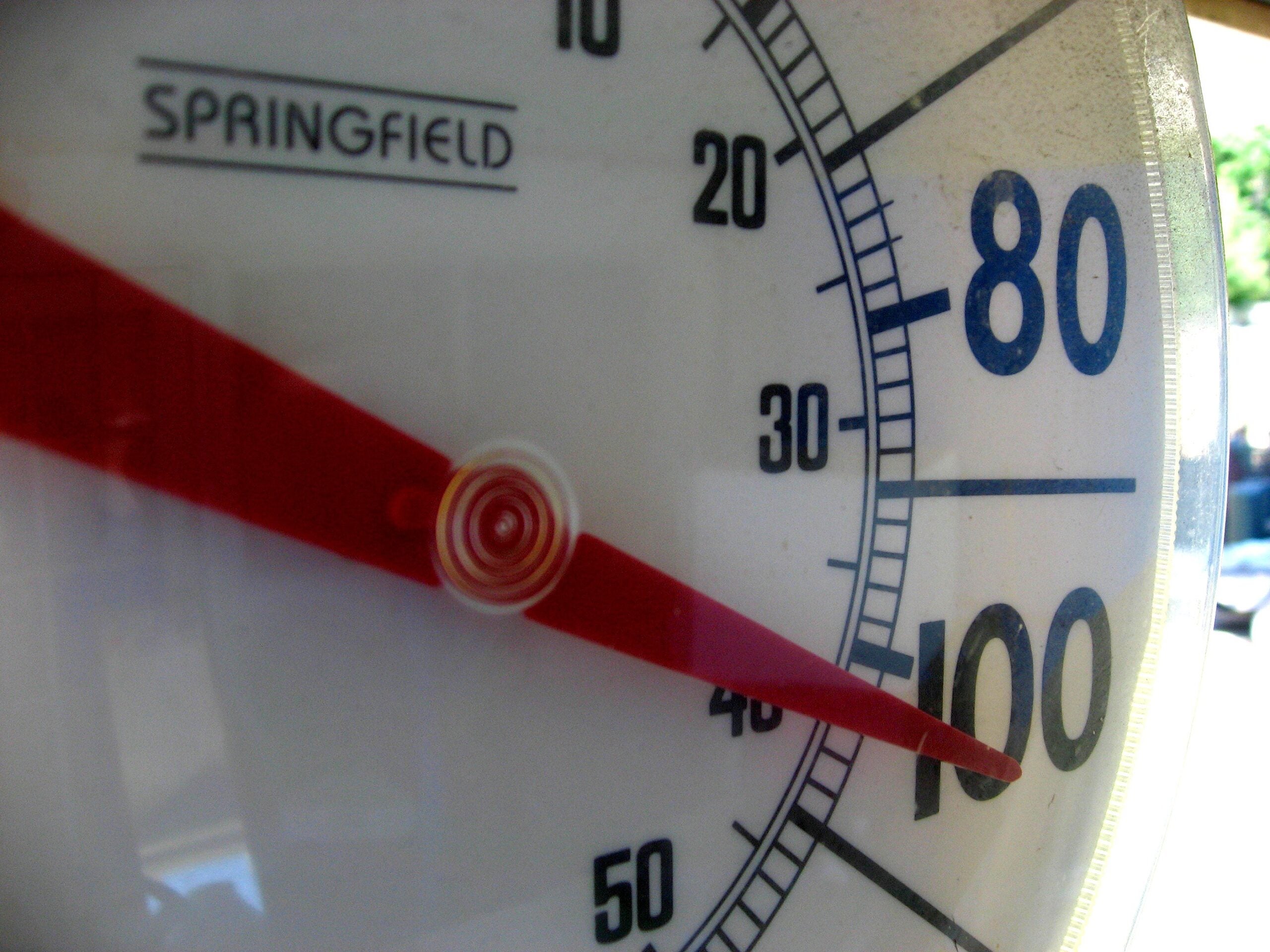A heatwave is hitting Wisconsin this week, with much of the state expecting heat indexes above 100 on Wednesday and Thursday.
The National Weather Service said an excessive heat watch is in effect for the entire state during those days. Meanwhile, an excessive heat warning is in effect for western portions of the state on Tuesday.
“This is all due to strong ridging, or high pressure, over the area, which is going to allow that heat to build over the next couple of days and allow for that heat to sit over the region for an extended period of time,” said Michaela Heeren, a meteorologist with the National Weather Service.
News with a little more humanity
WPR’s “Wisconsin Today” newsletter keeps you connected to the state you love without feeling overwhelmed. No paywall. No agenda. No corporate filter.
Sorry the forecast hasn’t changed. It is still going to be hot this week.
SW WI is expected to see Heat Index values of 100+ Tue. A Heat Watch is in effect for Wed & Thu. Make sure to take care during these hot temps & keep an eye on those who do not have access to AC! #wiwx pic.twitter.com/B6hGzbs5XG
— NWS Milwaukee (@NWSMilwaukee) August 21, 2023
The heat index calculates what the temperature feels like when relative humidity is combined with the air temperature.
An excessive heat warning is in effect for Sauk, Iowa and Lafayette Counties from 11 a.m. until 9 p.m. on Tuesday. The area could see a heat index greater than or equal to 105 degrees.
A heat advisory, with a heat index of 100 to 104 degrees, is in effect for Dane, Green and Rock Counties from 11 a.m. on Wednesday until 8 p.m. on Thursday.
Heeren said the high pressure system should get less intense by the end of the week. A cold front moving through the northern part of the state will help temperatures to cool down.
Once they arrive, cooler temperatures are likely to stick around. Heeren said it’s doubtful the state will be hit with another serious heat wave this summer as the season winds down.
“At the moment, we’re not seeing any weather modeling indicating another high quite as intense as this one,” Heeren said.
Extreme heat causes the highest number of annual deaths among all weather-related hazards, according to the Federal Emergency Management Agency. Tom Sivak, the FEMA administrator for the Midwest region, said it’s important to treat heat-related illnesses like a “life-threatening emergency.”
“The reason why extreme heat can be a killer is because we don’t necessarily know that we might be impacted until it’s too late,” he said.
Sivak said heat stroke and heat exhaustion are the most common heat-related illnesses. He also said it’s important to check on vulnerable family members or friends when the temperatures are as high as they will be this week.
The NWS said during heat advisories and warnings, people should:
- Slow down and reduce outdoor activities, especially during the hottest parts of the day.
- Dress for summer heat: wear lightweight, light-colored clothing.
- Do not get too much sun. It makes it even harder for your skin to cool you off.
- Drink plenty of water and stay away from all alcoholic drinks, which will make the heat’s effect on your body worse.
- Spend time indoors. If air conditioning is not available, stay on the lowest floor out of the sunshine. You can also go to a public building where air conditioning is available, or sit in a bathtub filled with cool water. In many cases, municipalities will set up cooling shelters.
For more tips, visit Ready.gov/heat.
Wisconsin Public Radio, © Copyright 2026, Board of Regents of the University of Wisconsin System and Wisconsin Educational Communications Board.






